Editor’s note: We are pleased to share with our readers the following interesting autobiography. It was sent to us by one of our regular commenters. Martin Bakker (not his real name) was his great-grandfather.
MY LIFE
God’s Dealings With Me On Three Continents
By
Anon Imus Martin Bakker
My Birth and Early Childhood
September 7, 1877, I was born. There must have been a lot of commotion in the living quarters of the tjalk, a small sailing vessel in which I saw the light. It happened on the Maas, the name for the Meuse River, in the Netherlands, not far from the city of Utrecht. I was baptized in a Roman Catholic Church, for my father was of that religion, although my mother was a Protestant. There were four more children, two brothers and two sisters. I was the youngest.
My parents used the tjalk as a means of livelihood and moved grain, potatoes, brick, stone, etc., from one place to another, all over the low lands, Belgium and Germany. When sailing was at all possible, they sailed; sometimes the tjalk was pulled by a horse, and then again, in canals, they even “boomed” with long poles pushing the vessel forward.
This mode of living was not to last very long after I was born. Father was not of a strong constitution and at the time when I was about fifteen months old he died of over-exertion. It happened this way. We were in a severe storm on the Merwede, a continuation of the Maas, Waal and Linge, three rivers in the Netherlands. We were then with our ship between Gorkum and Fort Loevestein. Father saved our lives in a small boat but in his fight with the elements he was to pay dearly with his own life, for shortly after he had bleeding of the lungs and died.
We are Forced to Leave the Tjalk
Then mother was left with us five children. We were to go through a hard life. There was a heavy mortgage on the tjalk and the owners of the note threw a “chain over the ship”, a term used when one is not able to meet the obligations, as principal and interest of the mortgage. Mother was not able to pay wages to a mate and also meet the requirements of the debt that rested on the tjalk and still make a living for us all. So she had to leave the tjalk to the mortgage holders and rented a house in Gorkum.
Every so often we went to see the ship. “Our ship” we called it. It was moved in an out-of-the-way place. It was bereft of its riggings and everybody helped himself to a board or a brace, or something. The last time I saw our ship, when I was nearly ten years old, it had literally rotted away. No one had ever used it after we had to move out of it. At first, when we had left the tjalk, we got some help of the Roman Catholic Church, but when they found out that mother was a Protestant, they withdrew. With the help of some Protestant people, mother started a little business in brushes, brooms, all kinds of sand, Brussels earth lime to whiten wooden utensils or wooden shoes, etc. But for some reason or other, mostly for lack of money to see it through, I think, this business failed and we had to move to cheaper quarters. I was then about from four to five years old.
In the meantime my oldest brother, Bart, had drowned and my youngest sister had died of the measles. So there were three children left. We got poorer and poorer, for mother was sick occasionally and being weakened could not earn so much anymore with going out doing washings, scrubbing and other kind of housework. She usually would come home in the evening between eight and 9:00, while we were anxiously waiting for her and also whatever she might have taken along to eat. She always saved her “boterhammen” or slices of bread with butter for us and took along the leftovers from the people for whom she worked, if they gave them to her. Usually the next day noon we would warm them over and eat them. Sometimes we could put only water in the pan instead of grease. However the Lord blessed our food for we were healthy and never called the doctor.
One summer evening my mother came home from her work and on the way she had bumped her leg against a door step, because she had to go out of the way for several club ladies, who walked on the sidewalk. Her leg hurt her much and when she took off her woolen stockings, it was all soaked with blood and when she told us how and where it happened, I immediately ran to the place with one wooden shoe in my hand, to show these ladies that they could not do that to my mother, but I was sadly disappointed not to find the ladies there anymore when I arrived at the spot.
As I stated previously, we had to move in smaller quarters and over us upstairs lived another poor family, who were Roman Catholic. They were undoubtedly devout people, for every evening we heard the children say their prayers. I remember a part they always prayed, “Holy mother of God, full of mercy, pray for us sinners, now and in the hour of our death, Amen”.
Most of the territory around Gorkum was very low. Pastures and farmland were separated by ditches or “slooten”. We used to go berry picking at times but were not always allowed everywhere. At one time, I recall, we were chased by the owner. I was either the smallest or the slowest to get over a ditch with the use of a pole. I did not take time enough to take a sufficient swing with the result the pole stuck in the mud or in the clay and I slid down the pole and had to crawl out of the ditch. In the evening I did not fare so well when mother saw my mud soaked underwear. While we had lived there the last two years, when mother was out to work, I was left to shift for myself, going to school. Eat my lunch at noon, sometimes only dry bread, and outside of schoolhouse I roamed around, so I knew the town of Gorkum from A to Z. Those were happy carefree days.
After we moved, my sister started to hire out to do housework and when my brother Barend was twelve years old, he became messenger in a store. Life must have become a little easier for us then. Barend came home normally about at half past eight. At that time and in that little town everything was very quiet outdoors, no traffic, no vendors, and no children to play. My hearing was very keen. I remember telling my mother that I heard my brother coming, when he was still two blocks away from home. I would then tell her, now he is turning the corner of the Blue Tower Street, and now he passes Keizer Street, and now he is turning into our street and now he opens the door. She surely was surprised.

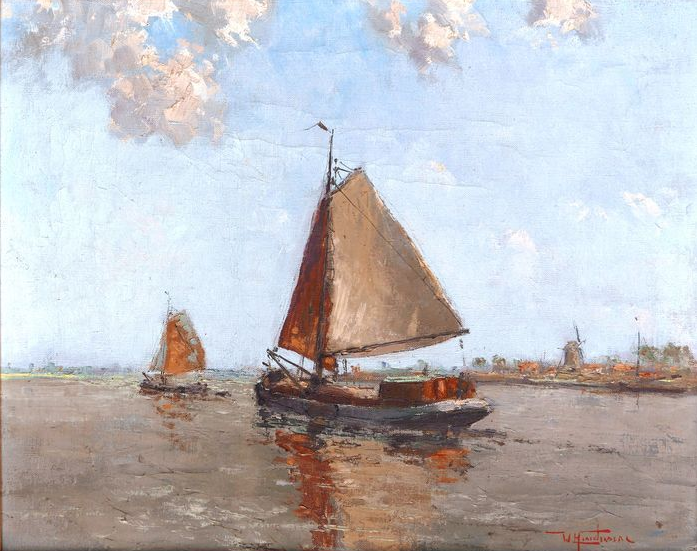

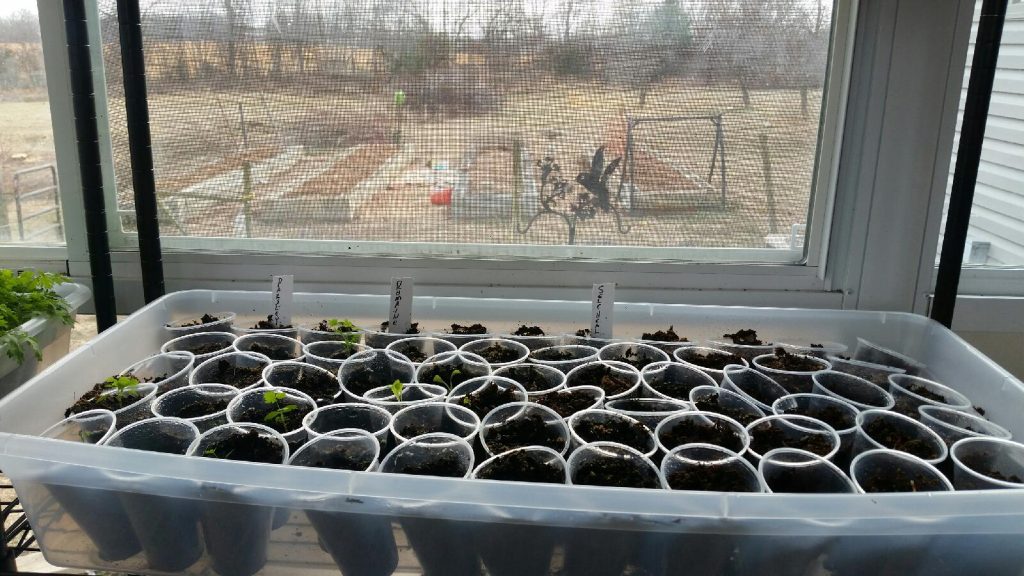
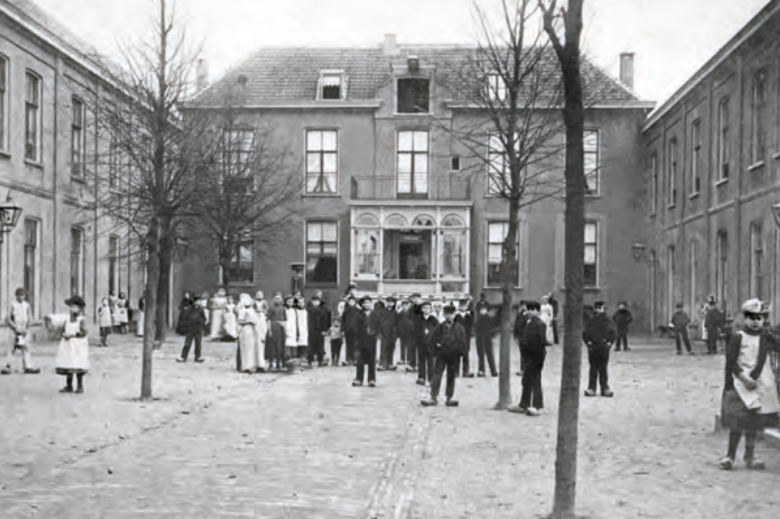
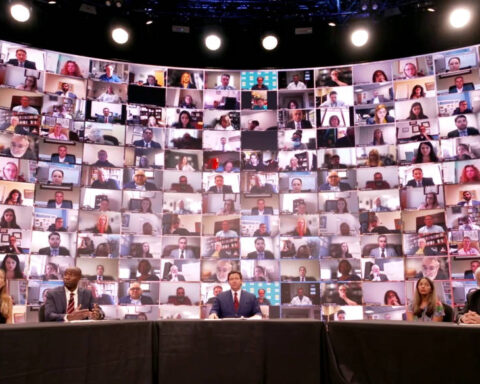
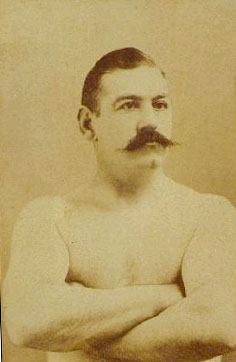
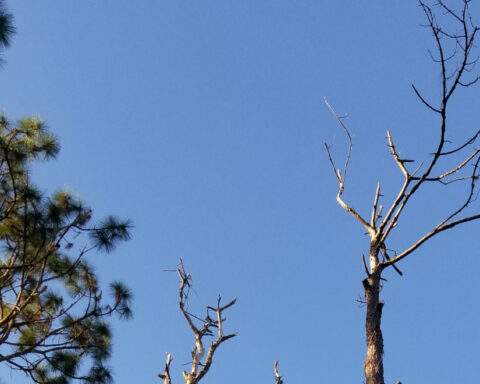
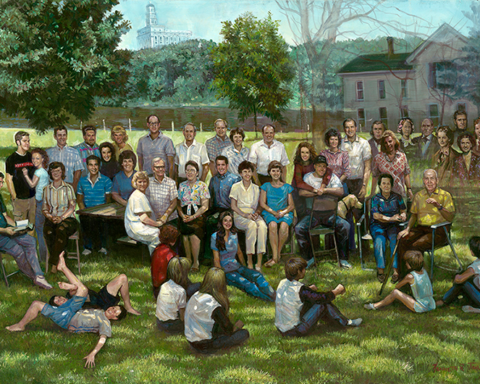

5
5